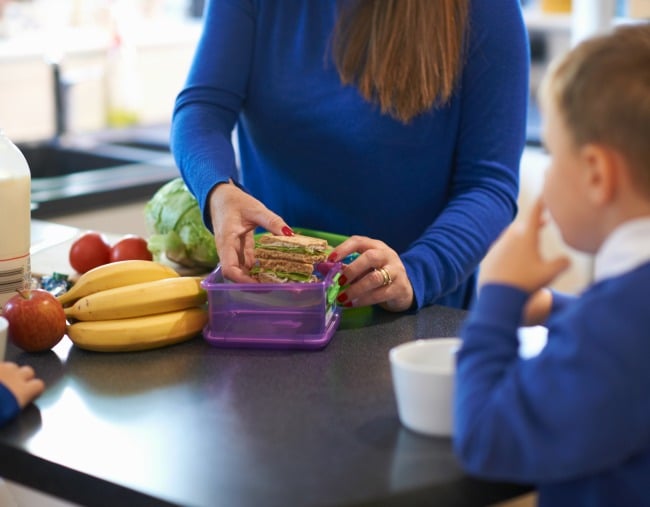
Last year, my oldest son started school. I was excited and a little apprehensive about what the year held for him. Unfortunately, this excitement wore off pretty quickly.
On day two, my son received a card in his lunch box – “We love your healthy lunch” and a newsletter stating the school rules around what can be eaten at each lunch break.
My bubble of food joy and peace burst right there and then as damage-control kicked in.
I ended up writing a letter to the school about my experiences as a parent and an Accredited Practising Dietitian. I offered actionable suggestions about how the school could support my child and the school children around food, eating and nutrition.
Here is the letter I wrote:
Dear Principal,
I am an Accredited Practising Dietitian. I am also the mother of a child attending your school.
On the second day of school my son received a card stating “We love your healthy lunch”. I also noted in a newsletter that “Only healthy food is allowed to be eaten at 1st lunch break. Treats and left-over food can be eaten at 2nd lunch break.”
Whilst I understand that “schools have an important role in promoting healthy eating and physical activity to students and providing an environment that supports a healthy lifestyle”, as noted in the Smart Choices – Healthy Food and Drink Supply Strategy for Queensland Schools, I have concerns about the approach the school is taking around educating parents and students about food and nutrition.


Top Comments
Halleluiah, the voice of reason finally socking it to the food police!
Or keep it much simpler and issue a fairly extensive list of prohibited foods and drinks in straightforward terms before the beginning of the term to THE PARENTS and make them sign it. Our school allows treats on Fridays and that's the end of it. Transgressors are contacted, NOT the child, no nasty note, no singling out, but contacted directly to remind them what they agreed to (and what you can have is very wide and child-friendly).
No need to involve the children in card reward systems.